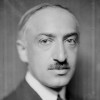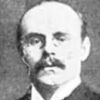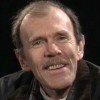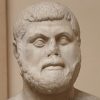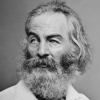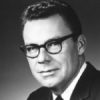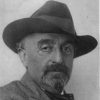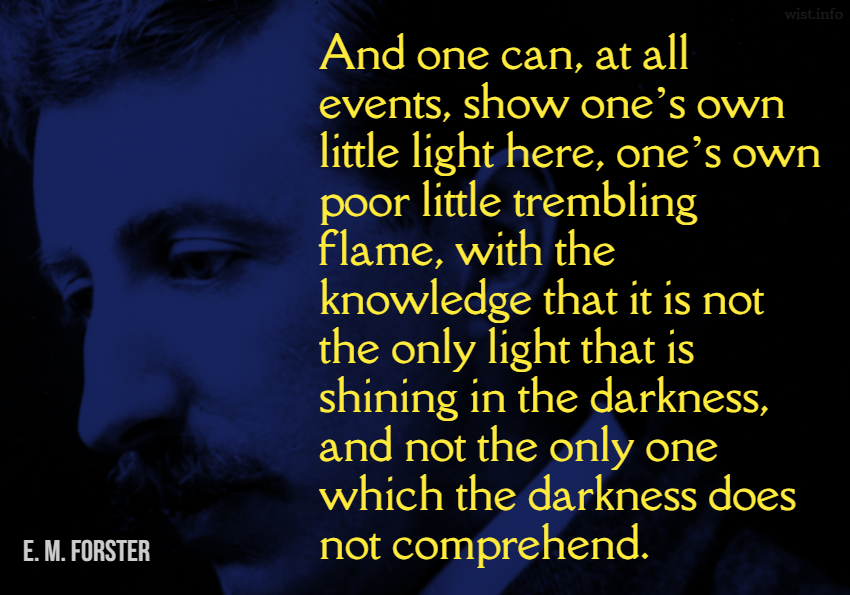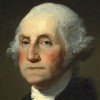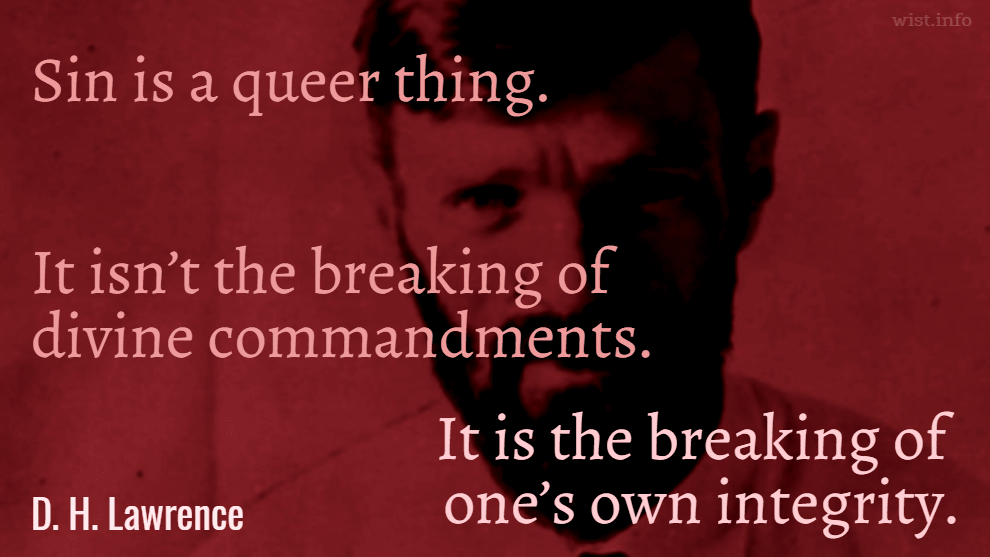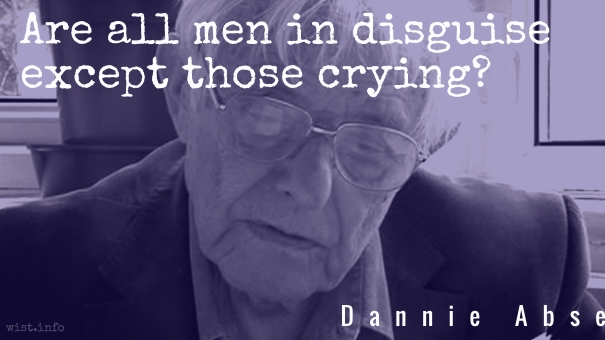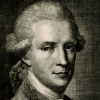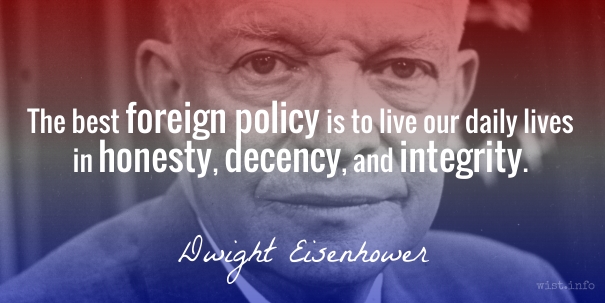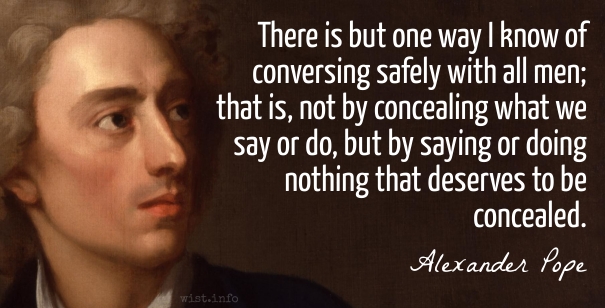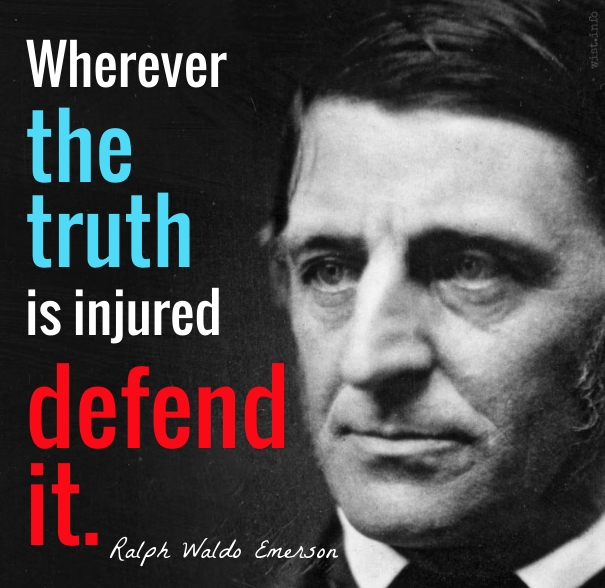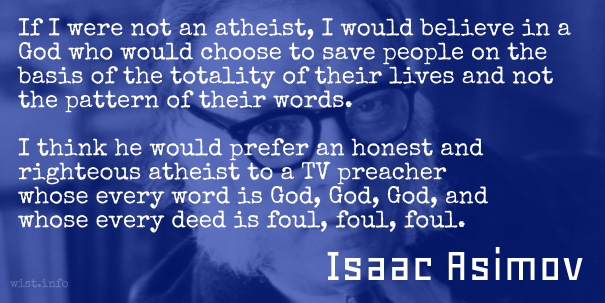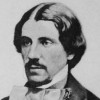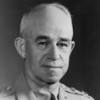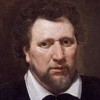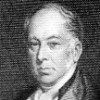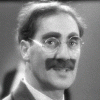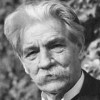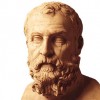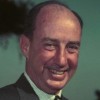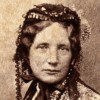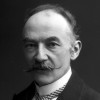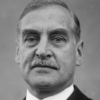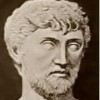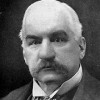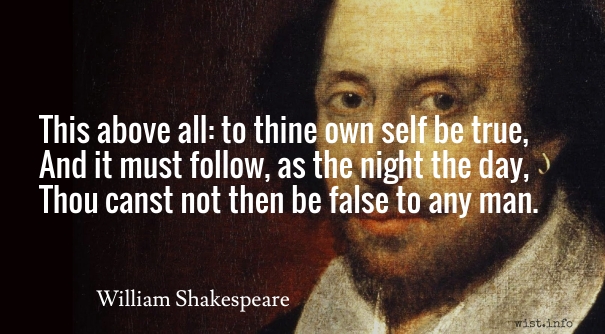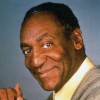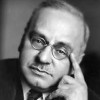Truth ensures trust, but not victory, or even happiness.
Penelope Fitzgerald (1916-2000) Novelist, poet, essayist, biographer
Human Voices, ch. 1 (1980)
(Source)
Writing of BBC News during World War 2.
Quotations about:
honesty
Note not all quotations have been tagged, so Search may find additional quotes on this topic.
ESMERALDA: Everyone says he’s sincere, but everyone isn’t sincere. If everyone was sincere who says he’s sincere there wouldn’t be half so many insincere ones in the world and there would be lots, lots, lots more really sincere ones!
There is no uniform of excellence, either in physical or spiritual nature: all genuine things are what they ought to be. The reindeer is good and beautiful, and so likewise is the elephant. In literature it is the same.
Thomas Carlyle (1795-1881) Scottish essayist and historian
“Jean Paul Friedrich Richter,” Edinburgh Review No. 91, Art. 7 (1827-06)
(Source)
A review of Heinrich Döring, Jean Paul Friedrich Richter's Life, with a Sketch of His Works (1826).
Sincerity must be used in moderation, even with our most intimate friends. To be too frank is to put into an opinion what may be simply ill temper; it is to risk losing a friend because of a poorly digested roast, a headache, a thunderstorm.
André Maurois (1885-1967) French author [b. Émile Salomon Wilhelm Herzog]
Conversation, “Sincerity” (1930)
(Source)
The Ten Commandments that, as a teacher, I should wish to promulgate, might be set forth as follows:
- Do not feel absolutely certain of anything.
- Do not think it worth while to proceed by concealing evidence, for the evidence is sure to come to light.
- Never try to discourage thinking for you are sure to succeed.
- When you meet with opposition, even if it should be from your husband or your children, endeavour to overcome it by argument and not by authority, for a victory dependent upon authority is unreal and illusory.
- Have no respect for the authority of others, for there are always contrary authorities to be found.
- Do not use power to suppress opinions you think pernicious, for if you do the opinions will suppress you.
- Do not fear to be eccentric in opinion, for every opinion now accepted was once eccentric.
- Find more pleasure in intelligent dissent that in passive agreement, for, if you value intelligence as you should, the former implies a deeper agreement than the latter.
- Be scrupulously truthful, even if the truth is inconvenient, for it is more inconvenient when you try to conceal it.
- Do not feel envious of the happiness of those who live in a fool’s paradise, for only a fool will think that it is happiness.
Bertrand Russell (1872-1970) English mathematician and philosopher
“The Best Answer to Fanaticism: Liberalism,” New York Times Magazine (1951-12-16)
(Source)
Sometimes referred to as "The Liberal Decalogue." Later printed in The Autobiography of Bertrand Russell, Vol. 3 (1969).
Candour’s the cement of friendship.
F. Anstey (1856-1934) English novelist and journalist (pseud. of Thomas Anstey Guthrie)
The Brass Bottle, ch. 1 “Horace Ventimore Receives a Commission” [Ventimore] (1900)
(Source)
Originally published in The Strand Magazine (1900-02).
Yes, it is always the best policy to speak the truth — unless, of course, you are an exceptionally good liar.
Jerome K. Jerome (1859-1927) English writer, humorist [Jerome Klapka Jerome]
Idler Magazine, “The Idler’s Club” column (1892-02)
(Source)
But the power
of a man’s will is often powerless:
laughter and tears follow so close upon
the passions that provoke them that the more
sincere the man, the less they obey his will.
[Ma non può tutto la virtù che vuole;
ché riso e pianto son tanto seguaci
a la passion di che ciascun si spicca,
che men seguon voler ne’ più veraci.]Dante Alighieri (1265-1321) Italian poet
The Divine Comedy [Divina Commedia], Book 2 “Purgatorio,” Canto 21, l. 105ff (21.105-108) (1314) [tr. Musa (1981)]
(Source)
(Source (Italian)). Alternate translations:As each alternate Passion leaves a trace
On the still-varying muscles of the face,
Fictitious oft; but, by the candid mind,
Conceal'd with pain, the dawn of dubious joy
My features wore.
[tr. Boyd (1802), st. 20]But the power which wills,
Bears not supreme control: laughter and tears
Follow so closely on the passion prompts them,
They wait not for the motions of the will
In natures most sincere.
[tr. Cary (1814)]But will is not with power entire endued.
Laughter and tears pursue so much the trace
The passion dictates that imprints them there,
Nor follow will in natures most sincere.
[tr. Bannerman (1850)]But yet the power that wills cannot do all things;
For tears and laughter are such pursuivants
Unto the passion from which each springs forth,
In the most truthful least the will they follow.
[tr. Longfellow (1867)]But virtue cannot all it would; for laughter and tears follow so much the passion from which each springs, that they least obey will in the most truthful men.
[tr. Butler (1885)]But all it wishes, will cannot forbear:
For smiles and tears to diverse passion wed,
Upon that passion follow so instinct.
In open natures, will is quite outsped.
[tr. Minchin (1885)]But the power that wills cannot do everything; for smiles and tears are such followers on the emotion from which each springs, that in the most truthful they least follow the will.
[tr. Norton (1892)]But the virtue which wills is not all powerful;
for laughter and tears follow so closely the passion from which each springs, that they least obey the will in the most truthful.
[tr. Okey (1901)]But the power to will cannot do all, for laughter and tears are so close followers on the passions from which they spring that they least follow the will in the most truthful.
[tr. Sinclair (1939)]But all is not done by the will's decree;
For on the passion wherefrom each is bred
Laughter and tears follow so close that least
In the most truthful is the will obeyed.
[tr. Binyon (1943)]But will with us is not made one with power;
Tears, laughter, tread so hard upon the heel
Of their evoking passions, that in those
Who're most sincere they least obey the will.
[tr. Sayers (1955)]But man's will
is not supreme in every circumstance:
for tears and laughter come so close behind
the passions they arise from, that they least
obey the will of the most honest mind.
[tr. Ciardi (1961)]But the power that wills cannot do everything; for smiles and tears are such close followers on the emotion from which each springs, that in the most truthful they least follow the will.
[tr. Singleton (1973)]But virtue cannot do everything that it will;
For laughter and tears follow so closely on
The passions from which they respectively proceed,
That they follow the will least in the most truthful.
[tr. Sisson (1981)]And yet the power of the will cannot do all,
for tears and smiles are both so faithful to
the feelings that have prompted them that true
feeling escapes the will that would subdue.
[tr. Mandelbaum (1982)]But the power of the will cannot do everything,
for laughter and weeping follow so closely on the passion from which each springs that they follow the will least in those who are most truthful.
[tr. Durling (2003)]But the virtue that wills is not all-powerful, since laughter and tears follow the passion, from which they spring, so closely, that, in the most truthful, they obey the will least.
[tr. Kline (2002)]But will power can't do everything it wills.
For tears and laughter follow on so close
to those emotions from which each act springs
that these least follow will in those most true.
[tr. Kirkpatrick (2007)]But the power that wills cannot do all it wills,
for laughter and tears so closely follow feelings
from which they spring, they least can be controlled
in those who are most truthful.
[tr. Hollander/Hollander (2007)]But will alone won't stop a human being,
Since laughter and tears are deeply interwoven,
Following hard on emotions which spring them forth,
And when they're truthful have little to do with the will.
[tr. Raffel (2010)]
We are firm believers in the maxim that for all right judgment of any man or thing it is useful, nay, essential, to see his good qualities before pronouncing on his bad.
Thomas Carlyle (1795-1881) Scottish essayist and historian
“Goethe,” Foreign Review No. 3 (1828-08)
(Source)
Reviewing Goethe's Sämmtliche Werke, Vollständige Ausgabe Letzter Hand (1827). Reprinted in Carlyle, Critical and Miscellaneous Essays (1845).
The least vile of all merchants is he who says: “Let us be virtuous, since, thus, we shall gain much more money than the fools who are dishonest.” For the merchant, even honesty is a financial speculation.
[Le moins infâme de tous les commerçants, c’est celui qui dit: Soyons vertueux pour gagner beaucoup plus d’argent que les sots qui sont vicieux. — Pour le commerçant, l’honnêteté elle-même est une spéculation de lucre.]
Charles Baudelaire (1821-1867) French poet, essayist, art critic
Journaux Intimes [Intimate Journals], “Mon cœur mis à nu [My Heart Laid Bare],” § 47 (1864–1867; pub. 1887) [tr. Isherwood (1930)]
(Source)
(Source (French)). Alternate translation:The least despicable of merchants is the one who says: Let us be virtuous so that we can make far more money than those vice-ridden fools. -- For the merchant, even honesty offers a money-making opportunity.
[tr. Sieburth (2022)]
After a hard night of it two old friends fell into a sleepy conversation in the steam-room of a Turkish bath.
“My wife loves me so much,” said one, “that she’ll believe me when I tell her I was kept downtown all night by business.”
“My wife loves me so much,” said the other, “that I won’t be afraid to tell her the truth.”H. L. Mencken (1880-1956) American writer and journalist [Henry Lewis Mencken]
A Little Book in C Major, ch. 1, § 10 (1916)
(Source)
Preoccupation with money is the great test of small natures, but only a small test of great ones; there may be a wide gulf between a man who despises money and a genuinely honest man.
[L’intérêt d’argent est la grande épreuve des petits caractères; mais ce n’est encore que la plus petite pour les caractères distingués; et il y a loin de l’homme qui méprise l’argent, à celui qui est véritablement honnête.]
Nicolas Chamfort (1741-1794) French writer, epigrammist (b. Nicolas-Sébastien Roch)
Products of Perfected Civilization [Produits de la Civilisation Perfectionée], Part 1 “Maxims and Thoughts [Maximes et Pensées],” ch. 2, ¶ 164 (1795) [tr. Mathers (1926)]
(Source)
(Source (French)). Alternate translations:Concern for money is the great test of small natures; but is scarcely a test at all for those who rise above the ordinary; and there is a long way between the man who scorns money and the one who is genuinely honest.
[tr. Merwin (1969)]Weak characters think money all-important; for any well-bred person, it's a very minor concern.
[tr. Parmée (2003), ¶ 129]The desire for money can go very far in proving that a person has a petty character, but it has little to say about a persons sincerity; and there is a great distance between a man who scorns money and someone who is truly honest.
[tr. Siniscalchi]
“All stories are true,” Skarpi said. “But this one really happened, if that’s what you mean.” He took another slow drink, then smiled again, his bright eyes dancing. “More or less. You have to be a bit of a liar to tell a story the right way. Too much truth confuses the facts. Too much honesty makes you sound insincere.”
Patrick Rothfuss (b. 1973) American author
The Name of the Wind, ch. 26 “Lanre Turned” (2007)
(Source)
Your conscience is the measure of the honesty of your selfishness. Listen to it carefully.
Richard Bach (b. 1936) American writer
Illusions: The Adventures of a Reluctant Messiah, ch. 13, epigraph (1977)
(Source)
Politeness is the art of choosing among one’s real thoughts.
Germaine de Staël (1766-1817) Swiss-French writer, woman of letters, critic, salonist [Anne Louise Germaine de Staël-Holstein, Madame de Staël, Madame Necker]
Quoted in Abel Stevens, Madame de Staël, Vol. 1, ch. 4 “Early Character” (1880)
(Source)
Stated as a possible paraphrase: "It was a maxim with her that politeness is the art of choosing among one's real thoughts."
The truth is often painful and disturbing. Hence if you stick to unalloyed reality, few people will follow you. An American presidential candidate who tells the American public the truth, the whole truth and nothing but the truth about American history has a 100 percent guarantee of losing the elections. The same goes for candidates in all other countries. How many Israelis, Italians or Indians can stomach the unblemished truth about their nations? An uncompromising adherence to the truth is an admirable spiritual practice, but it is not a winning political strategy.
Yuval Noah Harari (b. 1976) Israeli public intellectual, historian, academic, writer [יובל נח הררי]
“Why Fiction Trumps Truth,” New York Times (24 May 2019)
(Source)
The other part of it is [the belief that] if we just totally opened our souls to one another, we would love one another and get along. This trivializes the fact that people have deep and legitimately-held differences. People think, mistakenly, that etiquette means you have to suppress your differences. On the contrary, etiquette is what enables you to deal with them; it gives you a set of rules. On the floor of the Congress, you don’t say, “You’re a jerk and a crook”; you say, “I’m afraid the distinguished gentleman is mistaken about so and so.” Those are the things that enable you to settle your differences, to bring them out in the open. Everything else just starts battles.
Judith Martin (b. 1938) American author, journalist, etiquette expert [a.k.a. Miss Manners]
In “Polite Company,” interview by Hara Estroff Marano, Psychology Today (1998-03)
(Source)
And, oh! whate’er Heaven destined to betide,
Let neither flattery soothe, nor pity hide.
Prepared I stand: he was but born to try
The lot of man; to suffer, and to die.[πέρι γάρ μιν ὀιζυρὸν τέκε μήτηρ.
μηδέ τί μ᾽ αἰδόμενος μειλίσσεο μηδ᾽ ἐλεαίρων,
ἀλλ᾽ εὖ μοι κατάλεξον ὃπως ἤντησας ὀπωπῆς.]Homer (fl. 7th-8th C. BC) Greek author
The Odyssey [Ὀδύσσεια], Book 3, l. 96ff (3.96) (c. 700 BC) [tr. Pope (1725), l. 114ff]
(Source)
Telemachus seeking to learn from Nestor of the fate of his father, Odysseus. Telemachus later repeats these words in seeking news of his father from Menelaus (4.326). (Source (Greek)). Alternate translations:[T]he unhappy wanderer,
To too much sorrow whom his mother bore.
You then by all your bounties I implore,
[...] that in nought applied
To my respect or pity you will glose,
But uncloth’d truth to my desires disclose
[tr. Chapman (1616)][B]orn to calamity.
Let no respect, or pity mitigate
Your story, howsoever sad it be.
Nothing but naked truth to me relate.
[tr. Hobbes (1675), l. 85ff]For my father at his birth
Was, sure, predestin’d to no common woes.
Neither through pity, or o’erstrain’d respect
Flatter me, but explicit all relate
Which thou hast witness’d.
[tr. Cowper (1792), l. 120ff]How hath his mother to exceeding teen
borne him! Let no kind thought thy tidings screen;
Paint not the tale through pity.
[tr. Worsley (1861), st. 12]For sure a woeful wight his mother bore him!
Extenuate naught for shame or pity's sake,
But tell me all, as thou hast chanced to see!
[tr. Bigge-Wither (1869), l. 95ff]His mother bare him to exceeding sorrow. And speak me no soft words in ruth or pity, but tell me plainly what sight thou didst get of him.
[tr. Butcher/Lang (1879)]This man, his mother bore him to most exceeding woe --
But have no respect of my sorrow nor be soft and soothing now,
But tell all out unto me, in what wise the man thou hast seen.
[tr. Morris (1887), l. 95ff]To exceeding grief his mother bore him. Use no mild word, no yield to pity, from regard for me, but tell me fully all you chanced to see.
[tr. Palmer (1891)]He was a man born to trouble. Do not soften things out of any pity for me, but tell me in all plainness exactly what you saw.
[tr. Butler (1898)]For beyond all men did his mother bear him to sorrow. And do thou nowise out of ruth or pity for me speak soothing words, but tell me truly how thou didst come to behold him.
[tr. Murray (1919)]Even from his mother's womb, calamity had marked him for her own. Do not in pity convey to me smooth things, things gentler than the truth: blurt out, rather, all that met your sight.
[tr. Lawrence (1932)]For if ever a man was born for misery, it was he. Do not soften your account out of pity or concern for my feelings, but faithfully describe the scene that met your eyes.
[tr. Rieu (1946)]The man was born for trouble. Spare me no part for kindness' sake; be harsh; but put the scene before me as you saw it.
[tr. Fitzgerald (1961)]His mother bore this man to be wretched. Do not soften it because you pity me and are sorry for me, but fairly tell me all that your eyes have witnessed.
[tr. Lattimore (1965)]She who gave birth to him gave birth to grief. You need not sweeten anything for me. Forget discretion, set aside your pity: tell me completely -- all you chanced to see.
[tr. Mandelbaum (1990)]More than all other men, that man was born for pain.
Don't soften a thing, from pity, respect for me --
tell me, clearly, all your eyes have witnessed.
[tr. Fagles (1996)]He was born to sorrow.
More than any man on earth. And do not,
Out of pity, spare me the truth, but tell me
Whatever you have seen, whatever you know.
[tr. Lombardo (2000), l. 104ff]For his mother indeed bore him to be woeful. Spare me nothing, extenuate nothing, nor show any pity; tell me all to the end, however it came to your notice.
[tr. Merrill (2002)]For if ever a man was born to suffer it was he. Do not soften your account out of pity or concern for my feelings, but faithfully describe the scene that met your eyes.
[tr. D C H Rieu (2002)]More than any other man his mother bore him for wretchedness. Do not let respect or pity for me soften your words, but tell me exactly how you chanced to see him.
[tr. Verity (2016)]He was surely born to suffer in extraordinary ways. Please do not try to sweeten bitter news from pity; tell me truly if you saw him, and how he was.
[tr. Wilson (2017)]To unmatched sorrow his mother bore him! And don't, from concern or pity, speak false comfort to me, but tell me exactly what you may have witnessed!
[tr. Green (2018)]For his mother bore him
to go through trouble more than other men.
Do not pity me or, from compassion,
just offer me kind words of consolation,
but tell me truly how you chanced to see him.
[tr. Johnston (2019), l. 119ff]
At some point I believe one has to stop holding back for fear of alienating some imaginary reader or real relative or friend, and come out with personal truth. If we are to understand the human condition, and if we are to accept ourselves with all the complexity, self-doubt, extravagance of feeling, guilt, joy, the slow freeing of the self to its full capacity for action and creation, both as human being and as artist, we have to know all we can abou each other, and we have to be willing to go naked.
May Sarton (1912-1995) Belgian-American poet, novelist, memoirist [pen name of Eleanore Marie Sarton]
Journal of a Solitary, “January 5th” (1973)
(Source)
For my part, I prefer a man without money to money without a man.
[Ego vero, malo virum, qui pecunia egeat, quam pecuniam, quae viro.]
Themistocles (c. 524-459 BC) Athenian politician and general
Quoted in Cicero, De Officiis [On Duties; On Moral Duty; The Offices], Book 2, ch. 20 / sec. 71 (44 BC) [tr. Miller (1913)]
(Source)
Original Latin (of Cicero). When asked whether he would choose for his daughter a poor but honest husband or a wealthy but disreputable one.
Alternate translations:The comment is also recorded in Plutarch, Parallel Lives, "Themistocles," ch. 18, sec. 5 [tr. Dryden (1653), rev. Clough (1859)]:
- "I had rather have a man without an estate, than to have an estate without a man." [tr. Cockman (1699)]
- "I would rather have a man without money, than money without a man." [tr. McCartney (1798)]
- "I certainly would rather she married a man without money, than money without a man." [tr. Edmonds (1865)]
- "I, indeed, prefer the man who lacks money to the money that lacks a man." [tr. Peabody (1883)]
Of two who made love to his daughter, he preferred the man of worth to the one who was rich, saying he desired a man without riches, rather than riches without a man.
Original Greek: τῶν δὲ μνωμένων αὐτοῦ τὴν θυγατέρα τὸν ἐπιεικῆ τοῦ πλουσίου προκρίνας ἔφη ζητεῖν ἄνδρα χρημάτων δεόμενον μᾶλλον ἢ χρήματα ἀνδρός.
Alternate translations:
- "When two men paid their addresses to his daughter, he chose the more agreeable instead of the richer of the two, saying that he preferred a man without money to money without a man." [tr. Stewart/Long (1894)]
- "Of two suitors for his daughter's hand, he chose the likely man in preference to the rich man, saying that he wanted a man without money rather than money without a man." [tr. Perrin (1914)]
The public does not like you to mislead or represent yourself to be something you’re not. And the other thing that the public really does like is the self-examination to say, you know, I’m not perfect. I’m just like you. They don’t ask their public officials to be perfect. They just ask them to be smart, truthful, honest, and show a modicum of good sense.
Ann Richards (1933-2006) American politician [Dorothy Ann Willis Richards]
“Ann Richards Discusses Texas, Politics and Humor,” Larry King Live, CNN (23 Jan 2001)
(Source)
How beautiful is candor! All faults may be forgiven of him who has perfect candor.
Humor is the most honest of emotions. Applause for a speech can be insincere, but with humor, if the audience doesn’t like it there’s no faking it.
Robert Orben (1927-2023) American comedy writer, magician, speechwriter
In “A Little Night Humor,” Washington Post (28 Jan 1982)
(Source)
One odd thing about foreign-policy professionals is that for all their sophistication, they tend to think the way to communicate with allies and potential allies is to compliment and sooth, compliment and soothe. But that isn’t polite, it’s patronizing, and to patronize is to insult. Candor is a compliment; it implies equality. It’s how true friends talk.
Candor is always a double-edged sword; it may heal or it may separate.
Wilhelm Stekel (1868-1940) Austrian physician, psychologist
Marriage at the Crossroads (1931)
(Source)
For virtue, not secrecy, is sought by good men.
[Honesta enim bonis viris, non occulta quaeruntur.]
Marcus Tullius Cicero (106-43 BC) Roman orator, statesman, philosopher
De Officiis [On Duties; On Moral Duty; The Offices], Book 3, ch. 9 (3.9) / sec. 38 (44 BC) [tr. Edmonds (1865)]
(Source)
(Source (Latin)). Alternate translations:For good men desire to be virtuous and honest, and not to be secret, that so they may sin without danger.
[tr. Cockman (1699)]What is honorable, and not what is concealed, is the object of pursuit with wise men.
[tr. McCartney (1798)]For it is right things, not hidden things, that are sought by good men.
[tr. Peabody (1883)]The good man seeks to do what is right, not to hide what he does.
[tr. Gardiner (1899)]For good men aim to secure not secrecy but the right.
[tr. Miller (1913)]Good men seek right conduct, not conduct that has to remain concealed.
[tr. Edinger (1974)]Honorable things, not secretive things, are sought by good men.
Let none of us delude himself by supposing that honesty is always the best policy. It is not.
William Ralph Inge (1860-1954) English prelate [Dean Inge]
Speculum Animae, Part 2, “Sunday Morning,” address, Cambridge (15 Jan 1911)
(Source)
Inge's argument is not that honesty is not the most virtuous course, but that it is not always the most secularly advantageous course, and that such disadvantage is one of the costs of maintaining Christian virtue.
DUKHAT: When others do a foolish thing, you should tell them it is a foolish thing. They can still continue to do it, but at least the truth is where it needs to be.
I love being with people. But I need a script, a role, something that will help me overcome my fears of rejection and shame. Most religions and belief systems provide a blueprint for some sort of community. And the religion’s leaders model a way of being. For example, in my book Choke, a character enacts his own death and resurrection every night — as does the narrator in Fight Club. Here’s Jesus, allowing himself to look terrible in front of his peers. That’s the biggest purpose of religious gathering: permission to look terrible in public.
Chuck Palahniuk (b. 1962) American novelist and freelance journalist
“Those burnt tongue moments–Chuck Palahniuk in interview”, Interview by Andrew Lawless, Three Monkeys (May 2005)
(Source)
Never apologize for showing feeling, my friend. Remember that when you do so, you apologize for truth.
Benjamin Disraeli (1804-1881) English politician and author
Contarini Fleming, ch. 13 (1832)
(Source)
One must be fond of people and trust them if one is not to make a mess of life, and it is therefore essential that they should not let one down. They often do. The moral of which is that I must, myself, be as reliable as possible, and this I try to be. But reliability is not a matter of contract — that is the main difference between the world of personal relationships and the world of business relationships. It is a matter for the heart, which signs no documents. In other words, reliability is impossible unless there is a natural warmth. Most men possess this warmth, though they often have bad luck and get chilled. Most of them, even when they are politicians, want to keep faith. And one can, at all events, show one’s own little light here, one’s own poor little trembling flame, with the knowledge that it is not the only light that is shining in the darkness, and not the only one which the darkness does not comprehend.
E. M. Forster (1879-1970) English novelist, essayist, critic, librettist [Edward Morgan Forster]
“What I Believe,” The Nation (16 Jul 1938)
(Source)
Still I hope I shall always possess firmness and virtue enough to maintain (what I consider the most enviable of all titles) the character of an honest man.
George Washington (1732-1799) American military leader, Founding Father, US President (1789-1797)
Letter to Alexander Hamilton (28 Aug 1788)
(Source)
The one condition coupled with the gift of truth is its use.
Ralph Waldo Emerson (1803-1882) American essayist, lecturer, poet
“The Method of Nature,” speech, Waterville College, Maine (1841-08-11)
(Source)
You daub your face and think I shall not see
Your wrinkles. You deceive yourself, not me.
A small defect is nothing when revealed;
But greater seems the blemish ill concealed.[Lomento rugas uteri quod condere temptas,
Polla, tibi ventrem, non mihi labra linis.
Simpliciter pateat vitium fortasse pusillum:
Quod tegitur, magnum creditur esse malum.]Martial (AD c.39-c.103) Spanish Roman poet, satirist, epigrammatist [Marcus Valerius Martialis]
Epigrams [Epigrammata], Book 3, epigram 42 (3.42) (AD 87-88) [tr. Pott & Wright (1921)]
(Source)
"To Polla." (Source (Latin)). Alternate translations:Thou seek'st with lard to smooth thy wrinkled skin,
Bedaub'st thyself, and dost no lover win.
Simple decays men easily pass by,
But, hid, suspect some great deformity.
[tr. Killigrew (1695)]Leave off thy Paint, Perfumes, and youthful Dress,
And Nature's failing honesty confess;
Double we see those Faults which Art wou'd mend,
Plain downright Ugliness would less offend.
[tr. Sedley (1702), "To Cloe"]With lotion some wrinkles you labor to hide.
No policy, Polla, you show; but some pride.
A small fault perhaps might more safely appear:
Whatever is hid, draws construction severe.
[tr. Elphinston (1782), Book 6, Part 3, ep. 20]When you try to conceal your wrinkles, Polla, with paste made from beans, you deceive yourself, not me. Let a defect, which is possibly but small, appear undisguised. A fault concealed is presumed to be great.
[tr. Bohn's Classical (1859)]Seek not to hide a blemish that's but small.
The fault that's hidden ofttimes greater seems.
[ed. Harbottle (1897)]You try to conceal your wrinkles by the use of bean-meal, but you plaster your skin, Polla, not my lips. Let a blemish, which perhaps is small, simply show. The flaw which is hidden is deemed greater than it is.
[tr. Ker (1919)]Applying paste to smooth out the folds in your fat belly only means you are rouging your belly for yourself instead of your lips for me. It wouild be more natural to let that minor flaw stand. The hidden evil is considered worse.
[tr. Bovie (1970)]You try to hide your belly's wrinkles with bean meal, Polla, but you smear your stomach, not my lips. Better that the blemish, perhaps a trifling one, be frankly shown. Trouble concealed is believed to be greater than it is.
[tr. Shackleton Bailey (1993)]You use a cream your wrinkles to disguise,
But you're just pulling wool over our eyes.
The wrinkles, left alone, would draw no mention,
But, covered up, they draw closest attention.
[tr. Wills (2007)]Conceal a flaw, and the world will imagine the worst.
[Source]
I believe it is better to tell the truth than to lie. I believe that it is better to be free than to be a slave. And I believe that it is better to know than to be ignorant.
H. L. Mencken (1880-1956) American writer and journalist [Henry Lewis Mencken]
“What I Believe,” sec. 6, Forum and Century (Sep 1930)
(Source)
Ryunac, notwithstanding the bow, appeared unhappy with the answer. “You perceive,” he said, “that this answer is not likely to make me love you.”
“Well, but it is the truth, and I have been told that the truth has always some value.”
“Indeed it has value. So much so, that it should not be squandered uselessly; especially when doing so can be dangerous.”
During the greater part of the nineteenth century the significance of the opposition between the two principles of individual rights and social functions was masked by the doctrine of the inevitable harmony between private interests and public good. Competition, it was argued, was an effective substitute for honesty. Today … few now would profess adherence to the compound of economic optimism and moral bankruptcy which led a nineteenth century economist to say: “Greed is held in check by greed, and the desire for gain sets limits to itself.”
R. H. Tawney (1880-1962) English writer, economist, historian, social critic [Richard Henry Tawney]
The Acquisitive Century, ch. 3 “The Acquisitive Society” (1920)
(Source)
All men profess honesty as long as they can. To believe all men honest would be folly. To believe none so is something worse.
John Quincy Adams (1767-1848) US President (1825-29)
Letter to William Eustis (22 Jun 1809)
(Source)
Great robbers always resemble honest folk. Fellows who have rascally faces have only one course to take, and that is to remain honest; otherwise, they would be arrested off-hand.
Jules Verne (1828-1905) French novelist, poet, playwright
Around the World in Eighty Days, ch. 6 (1873)
(Source)
There are few mortals so insensible that their affections cannot be gained by mildness; their confidence by sincerity; their hatred by scorn or neglect.
Johann Georg Zimmermann (1728-1795) Swiss philosophical writer, naturalist, physician
Aphorisms and Reflections on Men, Morals and Things (1800)
(Source)
The best foreign policy is to live our daily lives in honesty, decency, and integrity; at home, making our own land a more fitting habitation for free men; and abroad, joining with those of like mind and heart, to make of the world a place where all men can dwell in peace.
Dwight David Eisenhower (1890-1969) American general, US President (1953-61)
Lecture (1950-03-23), Inaugural Gabriel Silver Lecture, Columbia University
If I were not an atheist, I would believe in a God who would choose to save people on the basis of the totality of their lives and not the pattern of their words. I think he would prefer an honest and righteous atheist to a TV preacher whose every word is God, God, God, and whose every deed is foul, foul, foul.
Give me the avow’d, the erect, the manly foe,
Bold I can meet — perhaps may turn his blow;
But of all plagues, good Heaven, thy wrath can send,
Save, save, oh! save me from the Candid Friend!
If someone knows of a problem and conceals it from me, I get more upset from that than from the problem itself. I tell our people time and time again: Bad news first.
To act with common sense according to the moment, is the best wisdom I know; and the best philosophy, to do one’s duties, take the world as it comes, submit respectfully to one’s lot; bless the Goodness that has given so much happiness with it, whatever it is; and despise affectation.
Dependability, integrity, the characteristic of never knowingly doing anything wrong, that you would never cheat anyone, that you would give everybody a fair deal. Character is a sort of an all-inclusive thing. If a man has character, everyone has confidence in him. Soldiers must have confidence in their leader.
Omar Bradley (1893-1981) American general
Interview with Edgar Puryear (1963-02-15)
(Source)
Quoted in Edgar Puryear, Nineteen Stars: A Study in Military Character and Leadership, ch. 6 (1971).
A single lie destroys a whole reputation for integrity.
[Piérdese con sola una mentira todo el crédito de la entereza.]
Baltasar Gracián y Morales (1601-1658) Spanish Jesuit priest, writer, philosopher
The Art of Worldly Wisdom [Oráculo Manual y Arte de Prudencia], § 181 (1647) [tr. Jacobs (1892)]
(Source)
(Source (Spanish)). Alternate translations:By one single lie, a man loses all his good name.
[Flesher ed. (1685)]A whole reputation for uprightness may be ruined with a single lie.
[tr. Fischer (1937)]A single lie can destroy your reputation for honesty.
[tr. Maurer (1992)]
The point is that we are all capable of believing things which we know to be untrue, and then, when we are finally proved wrong, impudently twisting the facts so as to show that we were right.
Wisdom without honesty is mere craft and cozenage.
Ben Jonson (1572-1637) English playwright and poet
Timber, or Discoveries Made upon Men and Matter (1641)
(Source)
Accepting praize that iz not our due iz not mutch better than tew be a receiver of stolen goods.
[Accepting praise that is not our due is not much better than to be a receiver of stolen goods.]
Wherever a Knave is not punished, an honest Man is laugh’d at.
George Savile, Marquis of Halifax (1633-1695) English politician and essayist
“Of Punishment,” Political, Moral, and Miscellaneous Thoughts and Reflections (1750)
(Source)
He who will please the crowd and for the sake of the most ephemeral renown will either proclaim those things which nature does not display or even will publish genuine miracles of nature without regard to deeper causes is a spiritually corrupt person.
Let’s work hard at being real. This means we are free to question, to admit failure or weakness, to confess wrong, to declare the truth. When a person is authentic, he or she does not have to win or always be in the top ten or make a big impression or look super-duper pious. […] Authentic people usually enjoy life more than most. They don’t take
themselves so seriously. They actually laugh and cry and think more freely because they have nothing to prove — no big image to protect, no role to play. They have no fear of being found out, because they’re not hiding anything.
In disputes upon moral or scientific points, ever let your aim be to come at truth, not to conquer your opponent: so you never shall be at a loss in losing the argument, and gaining a new discovery.
James Burgh (1714-1775) British politician and writer
The Dignity of Human Nature, Sec. 5 “Miscellaneous Thoughts on Prudence in Conversation” (1754)
(Source)
If you have a friend that will reprove your faults and foibles, consider you enjoy a blessing which the king upon the throne cannot have.
James Burgh (1714-1775) British politician and writer
The Dignity of Human Nature, Sec. 5 “Miscellaneous Thoughts on Prudence in Conversation” (1754)
(Source)
Always side with the truth. It’s much bigger than you are.
Teresa Nielsen Hayden (b. 1956) American editor, writer, essayist
Making Light, “Commonplaces”
(Source)
Neither human applause nor human censure is to be taken as the test of truth. He who should satisfy himself either with being popular, or with being unpopular, would equally be taking man’s judgment for his standard. But either the one or the other should set us upon careful self-examination.
Richard Whately (1787-1863) English logician, theologian, archbishop
Sermon, Christ Church, Dublin (22 Oct 1837)
(Source)
Without debate, without criticism, no Administration and no country can succeed — and no republic can survive. That is why the Athenian lawmaker Solon decreed it a crime for any citizen to shrink from controversy. And that is why our press was protected by the First Amendment — the only business in America specifically protected by the Constitution — not primarily to amuse and entertain, not to emphasize the trivial and the sentimental, not to simply “give the public what it wants” — but to inform, to arouse, to reflect, to state our dangers and our opportunities, to indicate our crises and our choices, to lead, mold, educate and sometimes even anger public opinion.
John F. Kennedy (1917-1963) US President (1961-63)
Speech, American Newspaper Publishers Association (27 Apr 1961)
(Source)
The trouble with writing a book about yourself is that you can’t fool around. If you write about someone else, you can stretch the truth from here to Finland. If you write about yourself the slightest deviation makes you realize instantly that there may be honor among thieves, but you are just a dirty liar.
He that applauds him who does not deserve praise, is endeavoring to deceive the public; he that hisses in malice or sport, is an oppressor and a robber.
Samuel Johnson (1709-1784) English writer, lexicographer, critic
The Idler, #25 (7 Oct 1758)
(Source)
No President should fear public scrutiny of his program. For from that scrutiny comes understanding; and from that understanding comes support or opposition. And both are necessary.
John F. Kennedy (1917-1963) US President (1961-63)
Speech, American Newspaper Publishers Association (27 Apr 1961)
(Source)
No one shows himself as he is, but wears his mask and plays his part. Indeed, the whole of our social arrangements may be likened to a perpetual comedy; and this is why a man who is worth anything finds society so insipid, while a blockhead is quite at home in it.
[Allerdings zeigt Keiner sich wie er ist, sondern Jeder trägt eine Maske und spielt eine Rolle. — Ueber haupt ist das ganze gesellschaftliche Leben ein fortwährendes Komödienspielen. Dies macht es gehaltvollen Leuten insipid; während Plattköpfe sich so recht darin gefallen.]
Arthur Schopenhauer (1788-1860) German philosopher
Parerga and Paralipomena, Vol. 2, ch. 26 “Psychological Observations [Psychologische Bemerkungen],” § 315 (1851) [tr. Saunders (1890)]
(Source)
(Source (German)). Alternate translation:It is quite certain that no one shows himself as he is, but that each wears a mask and plays a role. In general, the whole of social life is a continual comedy, which the worthy find insipid, whilst the stupid delight in it greatly.
[tr. Dircks (1897)]No one reveals himself as he is; we all wear a mask and play a role.
[tr. Hollingdale (1970)]It is certain that no one shows himself as he is, but everyone wears a mask and plays a part. Generally speaking, the whole of our social life is the continuous performance of a comedy. This renders it insipid for men of substances and merit, whereas blockheads take a real delight in it.
[tr. Payne (1974)]
Let us speak, though we show all our faults and weaknesses — for it is a sign of strength to be weak, to know it, and out with it — not in a set way and ostentatiously, but incidentally and without premeditation.
Let us say what we feel, and feel what we say; let speech harmonize with life.
You need not tell all the truth, unless to those who have a right to know it all. But let all you tell be truth.
James Burgh (1714-1775) British politician and writer
The Dignity of Human Nature, Sec. 5 “Miscellaneous Thoughts on Prudence in Conversation” (1754)
(Source)
Every man takes care that his neighbor shall not cheat him. But a day comes when he begins to care that he do not cheat his neighbor. Then all goes well. He has changed his market cart for a chariot of the sun.
Ralph Waldo Emerson (1803-1882) American essayist, lecturer, poet
“Worship,” The Conduct of Life, ch. 6 (1860)
(Source)
Writers the most learned, the most accurate in details, and the soundest in tendency, frequently fall into a habit which can neither be cured nor pardoned — the habit of making history into the proof of their theories.
John Dalberg, Lord Acton (1834-1902) British historian, politician, writer
Speech (1877-02-28), “The History of Freedom in Antiquity,” Bridgenorth Institute
(Source)
A man who himself does not believe what he tells another … has even less worth than if he were a mere thing. For a thing, as something real and given, has the property of being serviceable. … But the man who communicates his thoughts to someone in words which yet (intentionally) contain the contrary of what he thinks on the subject has a purpose directly opposed to the natural purposiveness of the power of communicating one’s thoughts, and therefore renounces his personality and makes himself a mere deceptive appearance of man, not man himself.
Advice to persons about to write History: Don’t. […]
In the Moral Sciences Prejudice is Dishonesty.
A Historian has to fight against temptations special to his mode of life, temptations from Country, Class, Church, College, Party, Authority of talents, solicitation of friends.
The most respectable of these influences are the most dangerous.
The historian who neglects to root them out is exactly like a juror who votes according to his personal likes or dislikes.
In judging men and things Ethics go before Dogma, Politics or Nationality.
The Ethics of History cannot be denominational.
Judge not according to the orthodox standard of a system religious, philosophical, political, but according as things promote, or fail to promote the delicacy, integrity, and authority of Conscience.
Put conscience above both System and Success.
History provides neither compensation for suffering nor penalties for wrong.
The inflexible integrity of the moral code is, to me, the secret of the authority, the dignity, the utility of History. If we may debase the currency for the sake of genius, or success, or rank, or reputation, we may debase it for the sake of a man’s influence, of his religion, of his party, of the good cause which prospers by his credit and suffers by his disgrace. Then History ceases to be a science, an arbiter of controversy, a guide of the Wanderer, the upholder of that moral standard which the powers of earth and religion itself tend constantly to depress. It serves where it ought to reign; and it serves the worst cause better than the purest.
The first step toward greatness is to be honest, says the proverb; but the proverb fails to state the case strong enough. Honesty is not only “the first step toward greatness,” — it is greatness itself.
Christian Nestell Bovee (1820-1904) American epigrammatist, writer, publisher
Intuitions and Summaries of Thought, vol. 1 (1862)
(Source)
I don’t like to write anything down on paper that I would not say to myself.
Joseph Joubert (1754-1824) French moralist, philosopher, essayist, poet
Pensées [Thoughts], 1806 entry [tr. Auster (1983)]
(Source)
I could not find an analog in other translations of the Pensées.
DUKE SENIOR: Sweet are the uses of adversity,
Which, like the toad, ugly and venomous,
Wears yet a precious jewel in his head.William Shakespeare (1564-1616) English dramatist and poet
As You Like It, Act 2, sc. 1, l. 12ff (2.1.12-14) (1599)
(Source)
Most people today don’t want honest answers insofar as honest means unpleasant or disturbing. They want a soft answer that turneth away anxiety. They want answers that are, in effect, escapes.
A fair & honest narrative of the bad is a voucher for the truth of the good.
Thomas Jefferson (1743-1826) American political philosopher, polymath, statesman, US President (1801-09)
Letter to Matthew Carey (19 Jun 1813)
(Source)
In the original, spelled "Mathew Carey"; in some sources, misidentified as "Matthew Carr."
If ever you find yourself environed with difficulties and perplexing circumstances out of which you are at a loss how to extricate yourself, do what is right, and be assured that that will extricate you the best out of the worst situations. Though you cannot see when you take one step what will be the next, yet follow truth, justice and plain dealing, and never fear their leading you out of the labyrinth in the easiest manner possible. The knot which you thought a Gordian one will untie itself before you. Nothing is so mistaken as the supposition that a person is to extricate himself from a difficulty by intrigue, by chicanery, by dissimulation, by trimming, by an untruth, by an injustice. This increases the difficulties tenfold; and those who pursue these methods get themselves so involved at length that they can turn no way but their infamy becomes more exposed.
Thomas Jefferson (1743-1826) American political philosopher, polymath, statesman, US President (1801-09)
Letter to Peter Carr (19 Aug 1785)
(Source)
The great principles of right and wrong are legible to every reader; to pursue them requires not the aid of many counsellors. The whole art of government consists in the art of being honest. Only aim to do your duty, and mankind will give you credit where you fail.
Thomas Jefferson (1743-1826) American political philosopher, polymath, statesman, US President (1801-09)
“A Summary View of the Rights of British America” (1774-06)
(Source)
Addressed to King George III.
Better be cheated in the price than in the quality of goods.
[Más vale ser engañado en el precio que en la mercadería.]
Baltasar Gracián y Morales (1601-1658) Spanish Jesuit priest, writer, philosopher
The Art of Worldly Wisdom [Oráculo Manual y Arte de Prudencia], § 157 (1647) [tr. Jacobs (1892)]
(Source)
(Source (Spanish)). Alternate translations:It is better to be deceived in the Price, than in the Commodity.
[Flesher ed. (1685)]Far better to be cheated in the price, than in the goods.
[tr. Fischer (1937)]Better to be cheated by the price than by the merchandise.
[tr. Maurer (1992)]
Gentlemen, you can never make me believe — no statute can ever convince me, that there is any infinite Being in this universe who hates an honest man. It is impossible to satisfy me that there is any God, or can be any God, who holds in abhorrence a soul that has the courage to express his thought. Neither can the whole world convince me that any man should be punished, either in this world or in the next, for being candid with his fellow-men. If you send men to the penitentiary for speaking their thoughts, for endeavoring to enlighten their fellows, then the penitentiary will become a place of honor, and the victim will step from it — not stained, not disgraced, but clad in robes of glory.
Robert Green Ingersoll (1833-1899) American lawyer, agnostic, orator
Trial of C.B. Reynolds for blasphemy (May 1887)
(Source)
A Man that should call everything by its right Name, would hardly pass the Streets without being knock’d down as a common Enemy.
George Savile, Marquis of Halifax (1633-1695) English politician and essayist
“Of Caution and Suspicion,” Political, Moral and Miscellaneous Thoughts and Reflections (1750)
(Source)
Govern thy Life and Thoughts, as if the whole World were to see the one, and read the other.
Thomas Fuller (1654-1734) English physician, preacher, aphorist, writer
Introductio ad Prudentiam, Vol. 1, # 417 (1725)
(Source)
MARIANA: No legacy is so rich as honesty.
William Shakespeare (1564-1616) English dramatist and poet
All’s Well that Ends Well, Act 3, sc. 5, l. 13 (3.5.13) (1602?)
(Source)
Men are disposed to live honestly, if the means of doing so are open to them.
Thomas Jefferson (1743-1826) American political philosopher, polymath, statesman, US President (1801-09)
Letter (1817-06-14) to François de Marbois
(Source)
When the issue is one of Truth and Justice, there can be no differentiating between small problems and great ones. For the general viewpoints on human behaviour are indivisible. People who fail to regard the truth seriously in small matters, cannot be trusted in matters that are great.
[Wenn es sich um Wahrheit und Gerechtigkeit handelt, gibt es nicht die Unterscheidung zwischen kleinen und grossen Problemen. Denn die allgemeinen Gesichtspunkte, die das Handeln der Menschen betreffen, sind unteilbar. Wer es in kleinen Dingen mit der Wahrheit nicht ernst nimmt, dem kann man auch in grossen Dingen nicht vertrauen …]
I am for frank explanations with friends in cases of affronts. They sometimes save a perishing friendship, and even place it on a firmer basis than at first; but secret discontent must always end badly.
Sydney Smith (1771-1845) English clergyman, essayist, wit
Memoir of the Reverend Sydney Smith, by His Daughter, Lady Holland, Vol. 1, ch. 6 (1855)
(Source)
There are very few honest friends — the demand is not particularly great.
[Es gibt wenig aufrichtige Freunde. Die Nachfrage ist auch gering.]
Marie von Ebner-Eschenbach (1830-1916) Austrian writer
Aphorisms [Aphorismen], No. 528 (1880) [tr. Scrase & Mieder (1994)]
(Source)
There are worse things than losing an election; the worst thing is to lose one’s convictions and not tell the people the truth.
The truth is the kindest thing we can give folks in the end.
Harriet Beecher Stowe (1811-1896) American author
The Pearl of Orr’s Island, ch. 36 [Aunt Roxy] (1869)
(Source)
When man appears before the Throne of Judgment, the first question he is asked is not: “Have you believed in God?” or “Have you prayed and observed the ritual?” He is asked: “Have you dealt honorably and faithfully in all your dealings with your fellow man?”
If we say, ‘We have no sin,’ we are deceiving ourselves, and truth has no place in us; if we acknowledge our sins, he is trustworthy and upright, so that he will forgive our sins and will cleanse us from all evil.
The Bible (The New Testament) (AD 1st - 2nd C) Christian sacred scripture
1 John 1:8-9 [NJB (1985)]
(Source)
Alternate translations:If we say we have no sin, we deceive ourselves, and the truth is not in us.
If we confess our sins, he is faithful and just, and will forgive our sins and cleanse us from all unrighteousness.
[KJV (1611)]If we say we have no sin in us, we are deceiving ourselves and refusing to admit the truth; but if we acknowledge our sins, then God who is faithful and just will forgive our sins and purify us from everything that is wrong.
[JB (1966)]If we say that we have no sin, we deceive ourselves, and there is no truth in us. But if we confess our sins to God, he will keep his promise and do what is right: he will forgive us our sins and purify us from all our wrongdoing.
[GNT (1976)]If we claim, “We don’t have any sin,” we deceive ourselves and the truth is not in us. But if we confess our sins, he is faithful and just to forgive us our sins and cleanse us from everything we’ve done wrong.
[CEB (2011)]If we say that we have no sin, we deceive ourselves, and the truth is not in us. If we confess our sins, he who is faithful and just will forgive us our sins and cleanse us from all unrighteousness.
[NRSV (2021 ed.)]
If all hearts were open and all desires known — as they would be if people showed their souls — how many gapings, sighings, clenched fists, knotted brows, broad grins, and red eyes should we see in the market-place!
Among the smaller duties of life I hardly know any one more important than that of not praising where praise is not due.
Sydney Smith (1771-1845) English clergyman, essayist, wit
Lecture (1804-1806), Moral Philosophy, No. 9 “On the Conduct of the Understanding,” Royal Institution, London
(Source)
Collected in Elementary Sketches of Moral Philosophy (1849).
Intellectual honesty and obvious sincerity carry more conviction than was ever accomplished by mere utterance. The advocate can make no greater mistake than to ignore or attempt to conceal the weak points in his case. The most effective strategy is at an early stage of the argument to invite attention to your weakest point before the court has discovered it, then to meet it with the best answers at your disposal, to deal with all the remaining points with equal candor, and to end with as powerful a presentation of your strongest point as you are capable of making.
George W. Pepper (1867-1961) American lawyer, law professor, politician
Letter to Eugene Gerhart (1951-12-10)
(Source)
Quoted in Gerhart, America's Advocate: Robert H. Jackson, ch. 24 (1958).
Autobiography is only to be trusted when it reveals something disgraceful. A man who gives a good account of himself is probably lying, since any life when viewed from the inside is simply a series of defeats.
George Orwell (1903-1950) English writer [pseud. of Eric Arthur Blair]
“Benefit of Clergy: Some Notes on Salvador Dali,” opening words (1944)
(Source)
It will presumably be thought better, indeed one’s duty, to do away with even what is close to one’s heart in order to preserve the truth, especially when one is a philosopher. For one might love both, but it is nevertheless a sacred duty to prefer the truth to one’s friends.
[ἀληθείας καὶ τὰ οἰκεῖα ἀναιρεῖν, ἄλλως τε καὶ φιλοσόφους ὄντας: ἀμφοῖν γὰρ ὄντοιν φίλοιν ὅσιον προτιμᾶν τὴν ἀλήθειαν.]
Aristotle (384-322 BC) Greek philosopher
Nicomachean Ethics [Ἠθικὰ Νικομάχεια], Book 1, ch. 6 (1.6, 1096a.15) (c. 325 BC) [tr. Crisp (2000)]
(Source)
This is actually not given as a general guideline for living life, but specifically about offering a philosophical argument in opposition that offered by friends. (Source (Greek)). Alternate translations:Still perhaps it may appear better, nay to be our duty where the safety of the truth is concerned, to upset if need be even our own theories, specially as we are lovers of wisdom: for since both are dear to us, we are bound to prefer the truth.
[tr. Chase (1847), ch. 3]And yet, where the interests of truth are at actual stake, we ought, perhaps, to sacrifice even that which is our own -- if, at least, we are to lay any claim to a philosophic spirit. Both are dear to us alike, but truth must be religiously preserved.
[tr. Williams (1869)]Yet it will perhaps seem the best, and indeed the right course, at least when the truth is at stake, to go so far as to sacrifice what is near and dear to us, especially as we are philosophers. For friends and truth are both dear to us, but it is a sacred duty to prefer the truth.
[tr. Welldon (1892)]In the interests of truth we ought to sacrifice even what is nearest to us, especially as we call ourselves philosophers. Both are dear to us, but it is a sacred duty to give the preference to truth.
[tr. Peters (1893)]Yet it would perhaps be thought to be better, indeed to be our duty, for the sake of maintaining the truth even to destroy what touches us closely, especially as we are philosophers or lovers of wisdom; for, while both are dear, piety requires us to honour truth above our friends.
[tr. Ross (1908)]Still perhaps it would appear desirable, and indeed it would seem to be obligatory, especially for a philosopher, to sacrifice even one's closest personal ties in defense of the truth. Both are dear to us, yet 'tis our duty to prefer the truth.
[tr. Rackham (1934)]Yet it would seem better, perhaps, and something we should do, at any rate when the preservation of the truth is at stake, to confute even what is properly our own, most of all because we are philosophers. For while we love both our friends and the truth, it is a pious thing to accord greater honor to the truth.
[tr. Reeve (1948)]Yet it would perhaps be thought better, and also our duty, to forsake even what is close to us in order to preserve the truth, especially as we are philosophers; for while both are dear, it is sacred to honor truth above friendship.
[tr. Apostle (1975), ch. 4]Yet surely it would be thought better, or rather necessary (above all for philosophers), to refute, in defence of truth , even views to which one is attached; since both are dear, it is right to give preference to the truth.
[tr. Thomson/Tredennick (1976)]Still, it presumably seems better, indeed only right, to destroy even what is close to us if that is the way to preserve truth. And we must especially do this when we are philosophers, lovers of wisdom; for though we love both the truth and our friends, piety requires us to honor the truth first.
[tr. Irwin/Fine (1995)]But perhaps it might be held to be better, in fact to be obligatory, at least for the sake of preserving the truth, to do away with even one's own things, especially for those who are philosophers. For although both are clear, it is a pious thing to honor the truth first.
[tr. Bartlett/Collins (2011)]
KATHERINE: Out with it boldly. Truth loves open dealing.
William Shakespeare (1564-1616) English dramatist and poet
Henry VIII, Act 3, sc. 1, l. 44 (3.1.44) (1613)
(Source)
Look at a man in the midst of doubt and danger, and you will lean in his hour of adversity what he really is. It is then that true utterances are wrung from the recesses of his breast. The mask is torn off; the reality remains.
I have made up my mind that if there is a God, he will be merciful to the merciful.
Upon that rock I stand.
That he will not torture the forgiving.
Upon that rock I stand.
That every man should be true to himself, and that there is no world, no star, in which honesty is a crime.
Upon that rock I stand.
The honest man, the good woman, the happy child, have nothing to fear, either in this world or the world to come.
Upon that rock I stand.Robert Green Ingersoll (1833-1899) American lawyer, agnostic, orator
“What Must We Do to Be Saved?” Sec. 11 (1880)
(Source)
For of those to whom much is given, much is required. And when at some future date the high court of history sits in judgment on each of us — recording whether in our brief span of service we fulfilled our responsibilities to the state — our success or failure, in whatever office we hold, will be measured by the answers to four questions:
First, were we truly men of courage — with the courage to stand up to one’s enemies — and the courage to stand up, when necessary, to one’s associates — the courage to resist public pressure, as well as private greed?
Secondly, were we truly men of judgment — with perceptive judgment of the future as well as the past — of our mistakes as well as the mistakes of others — with enough wisdom to know what we did not know and enough candor to admit it.
Third, were we truly men of integrity — men who never ran out on either the principles in which we believed or the men who believed in us — men whom neither financial gain nor political ambition could ever divert from the fulfillment of our sacred trust?
Finally, were we truly men of dedication — with an honor mortgaged to no single individual or group, and comprised of no private obligation or aim, but devoted solely to serving the public good and the national interest?
Courage — judgment — integrity — dedication — these are the historic qualities […] which, with God’s help […] will characterize our Government’s conduct in the four stormy years that lie ahead.John F. Kennedy (1917-1963) US President (1961-63)
Speech (1961-01-09), Massachusetts legislature, Boston
(Source)
Given as US President-elect. The reference is to Luke 12:48.
But there is one feature I notice that is generally missing in Cargo Cult Science. That is the idea that we all hope you have learned in studying science in school — we never explicitly say what this is, but just hope that you catch on by all the examples of scientific investigation. It is interesting, therefore, to bring it out now and speak of it explicitly. It’s a kind of scientific integrity, a principle of scientific thought that corresponds to a kind of utter honesty — a kind of leaning over backwards. For example, if you’re doing an experiment, you should report everything that you think might make it invalid — not only what you think is right about it: other causes that could possibly explain your results; and things you thought of that you’ve eliminated by some other experiment, and how they worked — to make sure the other fellow can tell they have been eliminated.
Richard Feynman (1918-1988) American physicist
“Cargo Cult Science,” commencement address, California Institute of Technology (1974)
(Source)
A man always has two reasons for what he does — a good one, and the real one.
John Pierpont "J. P." Morgan (1837-1913) American banker and financier
(Attributed)
Quoted in Owen Wister, Roosevelt: The Story of a Friendship, p. 280 (1930). There's no record in Morgan's writings, and versions of the quote from others can be found in the early 1800s. See here for more details.
Sometimes given as "A man generally has two reasons for doing a thing: one that sounds good, and a real one."
Man is least himself when he talks in his own person. Give him a mask, and he will tell you the truth.
We are not afraid to entrust the American people with unpleasant facts, foreign ideas, alien philosophies, and competitive values. For a nation that is afraid to let its people judge the truth and falsehood in an open market is a nation that is afraid of its people.
John F. Kennedy (1917-1963) US President (1961-63)
“Remarks on the 20th Anniversary of the Voice of America” (speech), Washington, DC (26 Feb 1962)
(Source)
If there is one thing upon this earth that mankind love and admire better than another, it is a brave man — it is the man who dares to look the devil in the face and tell him he is a devil.
James A. Garfield (1831-1881) US President (1881), lawyer, lay preacher, educator
(Attributed)
(Source)
Quoted in The Phrenological Journal (Dec 1881).
POLONIUS: This above all: to thine own self be true,
And it must follow, as the night the day,
Thou canst not then be false to any man.William Shakespeare (1564-1616) English dramatist and poet
Hamlet, Act 1, sc. 3, l. 84ff (1.3.84-86) (c. 1600)
(Source)
Say nothing of my religion. It is known to God and myself alone. Its evidence before the world is to be sought in my life: if it has been honest and dutiful to society the religion which has regulated it cannot be a bad one.
Thomas Jefferson (1743-1826) American political philosopher, polymath, statesman, US President (1801-09)
Letter to John Adams (11 Jan 1817)
(Source)
Instructions he gave to a biographer.
Whether the succeeding generation is to be more virtuous than their predecessors, I cannot say; but I am sure they will have more worldly wisdom, and enough, I hope, to know that honesty is the 1st chapter in the book of wisdom.
Thomas Jefferson (1743-1826) American political philosopher, polymath, statesman, US President (1801-09)
Letter to Nathaniel Macon (1819-01-12)
(Source)
Usually just the last phrase is given, and transcribed as "Honesty is the first chapter in the book of wisdom."
More information about this quotation:
The childless experts on child raising also bring tears of laughter to my eyes when they say, “I love children because they’re so honest.” There is not an agent in the CIA or the KGB who knows how to conceal the theft of food, how to fake being asleep, or how to forge a parent’s signature like a child.
Everybody knows that the first law of history is not daring to say anything false; that the second is daring to say everything that is true; that there should be no suggestion of partiality, none of animosity when you write.
[Nam quis nescit primam esse historiae legem, ne quid falsi dicere audeat? Deinde ne quid veri non audeat? Ne quae suspicio gratiae sit in scribendo? Ne quae simultatis?]
Marcus Tullius Cicero (106-43 BC) Roman orator, statesman, philosopher
De Oratore [On the Orator, On Oratory], Book 2, ch. 15 (2.15) / sec. 62 (55 BC) [tr. May/Wisse (2001)]
(Source)
(Source (Latin)). Alternate translations:For, is there a Man ignorant, that the first Rule of History is, that an Historian shall not dare to advance a Falsity; the next, that there is no Truth but what he shall dare to tell? That in Writing, he shall be free of all Prepossession; of all Pique?
[tr. Guthrie (1755)]For, is there a man ignorant that the first rule of history is that an historian shall not dare to advance a falsehood; the next, that there no truth but what he shall dare to tell? That the writer should be actuated neither by favour, or by prejudice?
[Source (1808)]For who is ignorant that it is the first law in writing history, that the historian must not dare to tell any falsehood, and the next, that he must be bold enough to tell the whole truth? Also, that there must be no suspicion of partiality in his writings, or of personal animosity?
[tr. Watson (1860)]Who need be informed that the first law of history is, to have the honesty to state no falsehood, the next, the courage to suppress no truth, and to avoid all suspicion of undue bias or personal animosity?
[tr. Calvert (1870)]Who does not recognise that the first law of history is that we shall never dare to say what is false; the second that we shall never fear to say what is true; that everything we write shall be free from any suspicion of favoritism or flattery?
[ed. Harbottle (1906)]For who does not know history's first law to be that an author must not dare to tell anything but the truth ? And its second that he must make bold to tell the whole truth? That there must be no suggestion of partiality anywhere in his writings? Nor of malice?
[tr. Sutton/Rackham (1940)]The first law for the historian is that he shall never dare utter an untruth. The second is that he shall suppress nothing that is true. Moreover, there shall be no suspicion of partiality in his writing, or of malice.
[Bartlett's]
The truth is often a terrible weapon of aggression. It is possible to lie, and even to murder with the truth.
GWENDOLYN: On an occasion of this kind it becomes more than a moral duty to speak one’s mind. It becomes a pleasure.
Oscar Wilde (1854-1900) Irish poet, wit, dramatist
The Importance of Being Earnest, Act 2 (1895)
(Source)
Nothing astonishes men so much as common sense and plain dealing.
Ralph Waldo Emerson (1803-1882) American essayist, lecturer, poet
Essay (1841), “Art,” Essays: First Series, No. 12
(Source)




